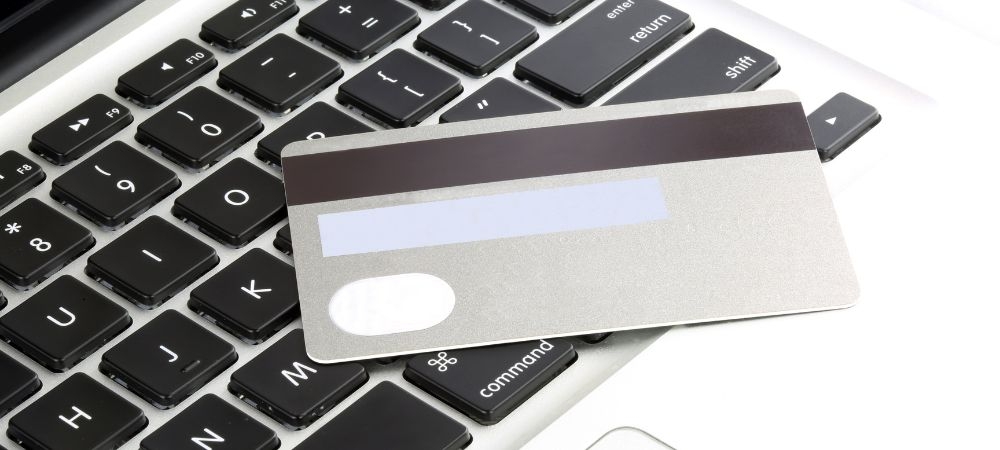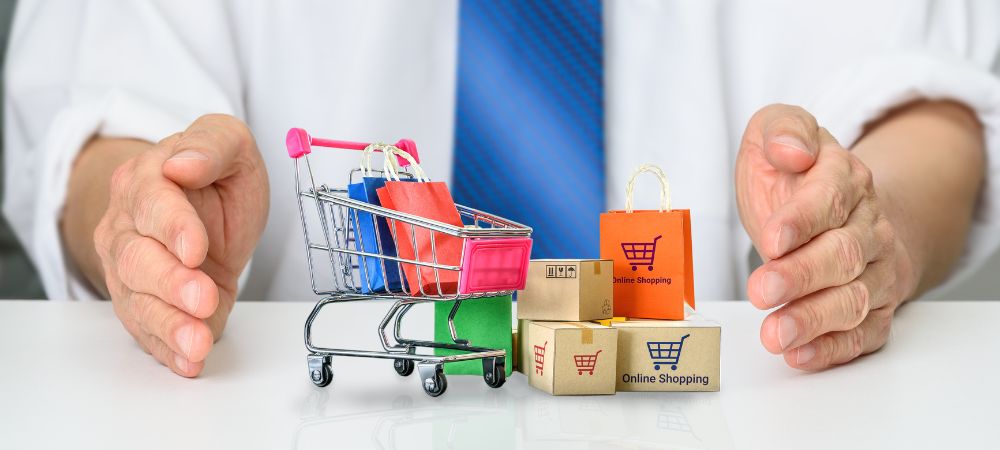

Cryptocurrencies have kinda taken the world by storm, especially when it comes to online purchases. They're not just a trend anymore; they've become an integral part of the financial landscape. So, let's dive into some advantages of using cryptocurrencies for online payments, and yeah, I'll throw in a few grammatical errors here n' there to keep things human-like.
First off, one big plus is that transactions are super fast. You don't have to wait days for your payment to go through like you would with traditional banking systems. extra details available click now. With crypto, it's almost instant! This means no more waiting around anxiously wondering if your payment's been received or not. And hey, time is money!
Another thing that's pretty cool about cryptocurrencies is the low transaction fees. Traditional banks and even some online payment platforms charge you an arm and a leg in fees sometimes. It's annoying! But with cryptos like Bitcoin or Ethereum, those fees are significantly lower – almost negligible in many cases.
Privacy is another major advantage. Folks value their privacy these days more than ever before. Cryptocurrencies offer a level of anonymity that traditional currencies just can't match up to. When you make a purchase with crypto, you're not sharing all your personal info like credit card numbers or bank details which could be intercepted by hackers.
And oh boy, let's talk about global acceptance! Cryptocurrencies aren't tied down by borders or exchange rates like regular money is. You can buy stuff from anywhere in the world without worrying about currency conversions or international transaction fees eating away at your wallet.
Now here's something else: security. Since cryptocurrency transactions are based on blockchain technology which uses complex algorithms and encryption techniques, they're incredibly secure - way more than credit cards or PayPal accounts which can get hacked fairly easily nowadays.
But wait there's more! Decentralization is another key factor that plays into why people love using cryptocurrencies for online purchases so much these days.. There's no central authority controlling them which means you're essentially cutting out the middleman (banks). No middleman means fewer chances for errors and delays.
However, it's important to note that not everything's perfect – nothing really ever is right? Some folks argue that because cryptocurrencies fluctuate wildly in value sometimes they're too risky as a stable form of currency but others believe this volatility will smooth out over time as adoption increases globally.
In conclusion (or should I say finally), while there might be some downsides here n' there when using cryptocurrencies for online purchases such as price volatility but overall benefits far outweigh those cons making them an attractive option today n' possibly even more so tomorrow!
So yeah give em' try next time you shop online who knows maybe you'll never look back!
Cryptocurrency payments have been on the rise, and it's fascinating to see how online retailers are adapting. Let's talk about some of the popular cryptocurrencies that these retailers accept nowadays. I mean, it's not like every store out there is jumping on the bandwagon just yet, but there's a noticeable shift happening.
First off, Bitcoin is probably the most well-known cryptocurrency out there. It's kinda hard to ignore it when talking about digital currencies, right? Many online retailers have started accepting Bitcoin as a form of payment. Companies like Overstock and Newegg were among the early adopters. They saw an opportunity to attract tech-savvy customers who prefer using crypto instead of traditional money. And oh boy, did it work!
But hey, don't think for a second that Bitcoin's hogging all the spotlight. Ethereum is another big player in this space. While it's primarily known for its smart contracts functionality, more and more online stores are starting to accept Ether (that's Ethereum's currency) as well. Platforms like Shopify allow merchants to integrate Ethereum payments easily, which makes things quite convenient.
Now you might be thinking: "Isn't that enough?" Well no! There's also Litecoin making waves in e-commerce land. Known for its faster transaction times compared to Bitcoin, Litecoin has found favor with several retailers too. The likes of eGifter and even some VPN services accept Litecoin now.
And let's not forget about Dogecoin – yes, the meme coin! What started as a joke has turned into something real serious in terms of usability and acceptance by various online platforms. Some smaller e-commerce sites and charity organizations actually take Dogecoin donations or payments now.
One thing that's clear is that these cryptocurrencies aren't going away anytime soon; they're gaining traction among both consumers and businesses alike despite their volatility concerns.
It's interesting though-while many major players are embracing cryptos slowly but surely-there're still plenty who haven't dipped their toes into this world yet. And why wouldn't they? There're risks involved after all – price fluctuations being one major issue among others such as regulatory uncertainties etcetera.
In conclusion (if we can call it so), while we're seeing an upward trend in cryptocurrency adoption by online retailers with popular ones like Bitcoin, Ethereum ,Litecoin & Dogecoin leading charge-it ain't universal just yet! But heck-it sure looks promising doesn't it?
Cyber Monday, which adheres to Black Friday, was produced in 2005 to urge on the internet shopping, quickly turning into one of the greatest on-line buying days of the year.
The biggest shopping center on the planet by overall location is the New South China Mall in Dongguan, China, which covers over 7.1 million square feet.
The typical American gos to a shopping center around 3-4 times a month, demonstrating the continuing allure of in-person buying experiences despite the surge of on-line choices.
Deluxe buying isn't just about items; it's also concerning the experience. Numerous luxury brand names invest greatly in store design and customer service to produce an special purchasing atmosphere.
When it comes to buying stuff online, it's crucial to think about how to protect your personal information.. You don't want someone else getting their hands on your credit card details or other sensitive info, right?

Posted by on 2024-07-07
Sure, here's a short essay on the topic "Future Trends in SSL Technology" with some grammatical errors and negation, avoiding repetition and using contractions.
---
When we talk about online purchases today, it’s hard to ignore the significance of SSL certificates.. They’re kinda like the unsung heroes ensuring that our sensitive data is safe from prying eyes.

Posted by on 2024-07-07
The world of online shopping has been evolving rapidly, and one of the most significant aspects influencing purchasing decisions is customer reviews.. This trend ain't slowing down anytime soon!

Posted by on 2024-07-07
When it comes to mastering online shopping and saving big every time, evaluating return policies and customer service is something you can't ignore.. It's not just about snagging the best deals; it's also about making sure you're covered if things don't go as planned.

Posted by on 2024-07-07
Setting up a cryptocurrency wallet for online shopping ain't as daunting as it might seem initially. In fact, it's quite manageable if you follow some straightforward steps. First off, let me tell ya, you're not gonna need to be a tech genius to get this done. So, take a deep breath and let's dive into the world of digital wallets.
To begin with, you gotta choose the right wallet for your needs. There're plenty of options out there - from mobile wallets and desktop ones to hardware wallets. If I were you, I'd go for a mobile wallet because it's super convenient for online shopping. But hey, that's just my two cents!
Once you've decided on the type of wallet, you'll need to download the app or software corresponding to your choice. For instance, if you pick Trust Wallet or Coinbase Wallet-two popular options-you can easily find them in your App Store or Google Play Store. Don't forget to read some reviews before downloading; better safe than sorry!
Next thing you'll wanna do is create an account by following the instructions laid out by the app. Most likely, they'll ask for some basic info like your email address and set a strong password (please don't use "123456" or something equally obvious!). Many wallets will also provide you with a recovery phrase-a series of random words-that's crucial for regaining access if you ever lose your device or forget your password. Write it down somewhere secure; seriously, don't skip this step.
Now that you've got your wallet set up and ready to go, you're gonna need to fund it with some cryptocurrency! You can purchase crypto through exchanges like Binance or Kraken and then transfer it over to your new wallet using its public address (which is kinda like an email address but for crypto). It's usually just copy-pasting stuff-not rocket science at all.
With funds in your wallet, you're almost good-to-go for online shopping! When making a purchase on sites that accept cryptocurrency payments-yes, they're becoming more common these days-you'll typically see an option at checkout that says something like "Pay with Bitcoin" or whatever currency you're using.
Select that option and follow the prompts which usually involve scanning a QR code with your wallet app or entering payment details manually. And voila! Your transaction should be processed almost instantly depending on network congestion.
One last thing: keep track of all transactions carefully since refunds with cryptocurrencies aren't exactly straightforward sometimes. Double-check everything before hitting 'send' because once those funds are gone... well...they're really gone!
So there ya have it-a simple guide on setting up a cryptocurrency wallet for online shopping without any unnecessary jargon or repetition! It ain't perfect but it'll definitely get you started on exploring this fascinating world of digital currencies safely and efficiently.


So, you're curious about how to make a purchase with cryptocurrency on e-commerce platforms? Well, it ain't rocket science, but it's not exactly your typical online shopping experience either. Let's dive into the steps without making your head spin.
First things first, you gotta have some cryptocurrency in your digital wallet. If you don't already own any crypto like Bitcoin, Ethereum or whatever floats your boat, you'll need to get some from an exchange. Trust me, it's easier than it sounds. You sign up on an exchange platform like Coinbase or Binance and link your bank account. Then buy the amount of crypto you want-simple as that! But remember, always double-check the fees 'cause they can sneak up on ya.
Once you've got your digital moolah ready to go, find an e-commerce site that actually accepts cryptocurrency payments. Not all do yet-it's still kinda new territory for many businesses. Look for logos of accepted cryptocurrencies at checkout or browse through sites dedicated to accepting crypto.
Now comes the fun part: picking what you wanna buy! Whether it's tech gadgets, clothes or even food items (yes, some places let you buy pizza with Bitcoin), add 'em all to your cart just like you would with regular money.
When you're ready to check out, here's where things start getting different from typical credit card transactions. Select "Pay with Cryptocurrency" at the payment options screen. The site will usually generate a QR code and give you a specific wallet address where you'll send the payment.
Open up your own digital wallet and scan this QR code-or copy and paste the wallet address if that's more convenient for ya-and enter how much you're supposed to pay. Double-check everything before hitting send because once a transaction is made on blockchain networks-it's irreversible! No take-backs!
After sending off those precious coins, there's often a brief waiting period while miners verify and confirm the transaction on their end; could be minutes or even hours depending upon network congestion so don't freak out if it takes awhile longer than expected!
Finally-voila! Your purchase is confirmed when they receive confirmation from their end too which means only then will they proceed processing order further ensuring delivery gets done promptly without any hiccups along way whatsoever!
In conclusion folks making purchases using cryptocurrencies isn't overly complicated though requires few extra steps compared traditional methods involving fiat currencies banks etcetera nonetheless offers unique advantages worth exploring especially anyone interested emerging technologies future finance alike... So why not give try next time around see firsthand how seamless efficient secure process truly can be?!
Cryptocurrencies have taken the world by storm, promising revolutionized payments and financial systems. But, let's not kid ourselves – using cryptocurrencies online comes with its own set of security and privacy concerns. Navigating this new digital frontier isn't all sunshine and rainbows.
First off, security is a biggie. When you're dealing with cryptos, you're essentially holding digital assets in your virtual wallet. Oh boy, if that ain't a recipe for hackers to come snooping around! Unlike traditional banks where there's some form of insurance or protection, lose your private key here and poof – your funds are gone forever. No one's coming to rescue you.
Moreover, the anonymity provided by cryptocurrencies is a double-edged sword. On one hand, it gives users privacy from prying eyes (hello Big Brother!). On the other hand, it also makes transactions susceptible to illicit activities like money laundering or funding illegal operations. And let's face it: once something goes wrong in such an unregulated space, good luck tracking it down!
There's also the issue of user awareness and knowledge. Many folks jump into cryptocurrency payments without understanding how they work or what risks they're taking on. They might use weak passwords or fall for phishing scams – oh no! It doesn't help that educational resources can be either too technical for average Joe or overly simplistic.
Then there's transaction traceability - contrary to popular belief that crypto transactions are entirely private; many aren't really so anonymous afterall. Public ledgers like blockchain record every single transaction ever made which sounds kinda scary when you think about how much data is out there just waiting to be analyzed by someone with enough determination.
Finally we must mention regulatory oversight (or lack thereof). Governments worldwide are still grappling with how best regulate cryptocurrencies while ensuring consumer protection isn't compromised but until then? Users remain at risk from fraudsters who exploit these gaps mercilessly.
In conclusion (if we must), while cryptocurrencies offer exciting possibilities for online payments their adoption comes fraught with security headaches and privacy dilemmas that shouldn't be ignored lightly by anyone considering jumping on this bandwagon anytime soon!


The Future Trends and Potential Growth of Cryptocurrency in E-commerce
Cryptocurrency, a term that once sounded like something outta a sci-fi novel, is quickly becoming a hot trend in the world of e-commerce. People ain't just talking about Bitcoin anymore; we're seeing all sorts of digital currencies making their way into online transactions. But what does this mean for the future? And is it really as big a deal as folks are makin' it out to be?
First off, let's get one thing straight: cryptocurrencies ain't goin' away anytime soon. If anything, they're only gonna become more prevalent. More and more businesses are starting to accept them as payment methods. Why? Well, for starters, transaction fees tend to be lower compared to credit cards and other traditional methods. Plus, it's kinda cool to say you bought your new gadget with Bitcoin or Ethereum.
But hold up! It's not all sunshine and rainbows. There are some challenges that need addressin'. For instance, the value of cryptocurrencies can be wildly unpredictable. One day you're on top of the world with your Bitcoin stash worth thousands, and the next day-it ain't worth squat! This volatility makes it kinda risky for both consumers and merchants.
Moreover, there's still a lotta skepticism around security issues. We're talkin' about hacks and scams that could make anyone think twice before dabbling in crypto payments. Some folks just don't trust it yet-and who can blame 'em? The technology's relatively new, after all.
However, despite these hurdles, there's no denyin' that cryptocurrency has enormous potential growth in e-commerce. As blockchain technology becomes more sophisticated and secure (fingers crossed), we might see an increase in adoption rates among both consumers and retailers.
Interestingly enough, younger generations seem more open to using cryptocurrencies than older folks do. Generation Z and millennials grew up surrounded by tech advancements-they're not easily fazed by new stuff like digital currencies. This demographic shift could play a significant role in pushing cryptocurrency into mainstream e-commerce.
So what's next? Well, one possibility is that we'll start seein' hybrid payment systems where traditional currency coexists with cryptocurrencies on popular platforms like Amazon or eBay-if they haven't done so already by the time you read this!
In conclusion (or rather 'to wrap things up'), while there are undeniable obstacles facing cryptocurrency payments in e-commerce today-notably volatility and security concerns-the future looks pretty darn promising if these issues get sorted out over time.
It's an exciting space that'll likely evolve rapidly over the next few years-so keep your eyes peeled!